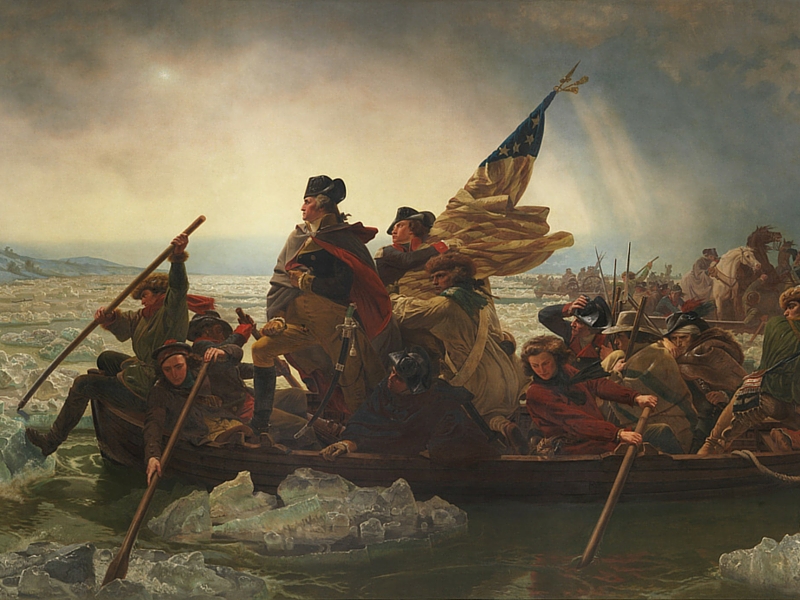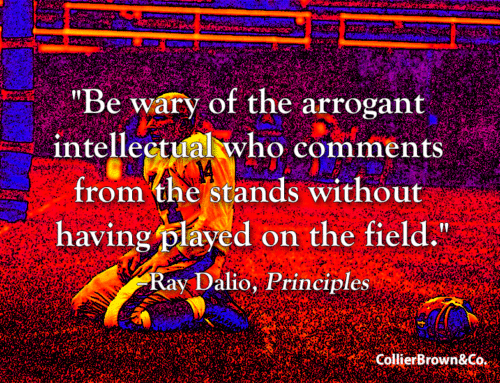As the year 1776 drew to a close, the American experiment was in trouble. In recent months the Colonial forces had suffered much at the hands of the British troops and Hessian mercenaries. They had been routed from Long Island, chased from Manhattan across New Jersey into Pennsylvania. Boston, New York and Rhode Island were occupied. The enlistments of the majority of the militias under the command of George Washington were to expire at the end of December and most of these men wanted to go home.
A hard decision was made: Washington decided to attack. Target: the Hessian-held town of Trenton. As Washington began to lead his troops across an ice-swollen Delaware River the night of December 25, a strong Nor’easter began to blow, driving sleet, snow, and freezing rain into the eyes of the soldiers. The wind blew cakes of ice against the far side of the river, making the landing extremely hazardous. If all that were not enough, a significant number of Washington’s men marched through the snow and frozen ground without shoes.
They attacked to the south during the morning, taking the Hessians by surprise. After less than a hour of fierce fighting, the Hessians surrendered. Nine hundred prisoners, plus food, ammunition and other supplies went back across the precarious Delaware with Washington’s troops. Although not apparent at the time, this battle, and others over the next few days, provided a strategic inflection point for the American Revolution. Things would be different from this point forward.
How about today? Leadership is still hard. For at least three reasons:
- The demands on your time are great and likely increasing. The world is “smaller” and faster than ever before and the bar is higher.
- You are more connected that anyone in history. Not only has technology amplified the demands on your time, it has also democratized information while making it ubiquitous. Leaders cannot control or “shape” information as in the past.
- Everyone you know is either busy, distracted, or both. Think technology, interruptions, demands on their time, more information/less control, plus a get it done now (short term) mentality.
While those three things are true and real, I believe leadership is about building willing follower-ship for a cause, and idea or a course of acton. The genesis of willing follower-ship is anchored by three irreplaceable piers: character (who you are), competence (what you know), and communication (how you interact with others).
If you were in a war zone, wet, freezing, hungry, sleep-deprived, homesick, shoeless and asked to cross an ice-swollen river in the middle of the night with roughly 2,000 others (who, in a few days would be able to return to loved ones to defend hearth and home) in order to march another 9 or 10 miles in the middle of a nor’easter to attack a garrison of well-fed, well-supplied, well-trained mercenaries… what kind of person would you willingly follow?
In Other Words…
“But lest some unlucky event should happen unfavorable to my reputation, I beg it may be remembered by every gentleman in the room that I this day declare with the utmost sincerity, I do not think myself equal to the command I am honored with.” – George Washington’s formal acceptance of command of the Army (16 June 1775)
“The reflection upon my situation, and that of this army, produces many an uneasy hour, when all around me are wrapped in sleep. Few people know the predicament we are in, on a thousand accounts; fewer still will believe, if any disaster happens to these lines, from what cause it flows.” – George Washington, in a letter to Joseph Reed, during the siege of Boston (14 January 1776)
“Let us therefore animate and encourage each other, and show the whole world that a Freeman, contending for liberty on his own ground, is superior to any slavish mercenary on earth.” – George Washington, General Orders, Headquarters, New York (2 July 1776)
“A slender acquaintance with the world must convince every man, that actions, not words, are the true criterion of the attachment of his friends, and that the most liberal professions of good will are very far from being the surest marks of it. I should be happy that my own experience had afforded fewer examples of the little dependence to be placed upon them.” – George Washington in a letter to Major-General John Sullivan (15 December 1779)
“Be courteous to all, but intimate with few, and let those few be well tried before you give them your confidence; true friendship is a plant of slow growth, and must undergo and withstand the shocks of adversity before it is entitled to the appellation.” – George Washington, in a letter to Bushrod Washington (15 January 1783)
“If men are to be precluded from offering their sentiments on a matter which may involve the most serious and alarming consequences that can invite the consideration of mankind, reason is of no use to us; the freedom of speech may be taken away, and dumb and silent we may be led, like sheep to the slaughter.” – George Washington’s address to officers of the Army (15 March 1783)
“A people… who are possessed of the spirit of commerce, who see and who will pursue their advantages may achieve almost anything.” – George Washington, in a letter to Benjamin Harrison (10 October 1784)
“When the illustrious part that your Excellency has borne in this long and arduous contest becomes a matter of history, fame will gather your brightest laurels rather from the banks of the Delaware than from those of the Chesapeake.” – Lord General Cornwallis, in a toast to General Washington after the Battle of Yorktown (1781)
In The Word…
“Suffering produces endurance, and endurance produces character, and character produces hope” – Romans 5:3-4
In Linked Words…
Re-enactment of Washington’s crossing of the Delaware
Washington Crossing Delaware from Robert Bell on Vimeo.






